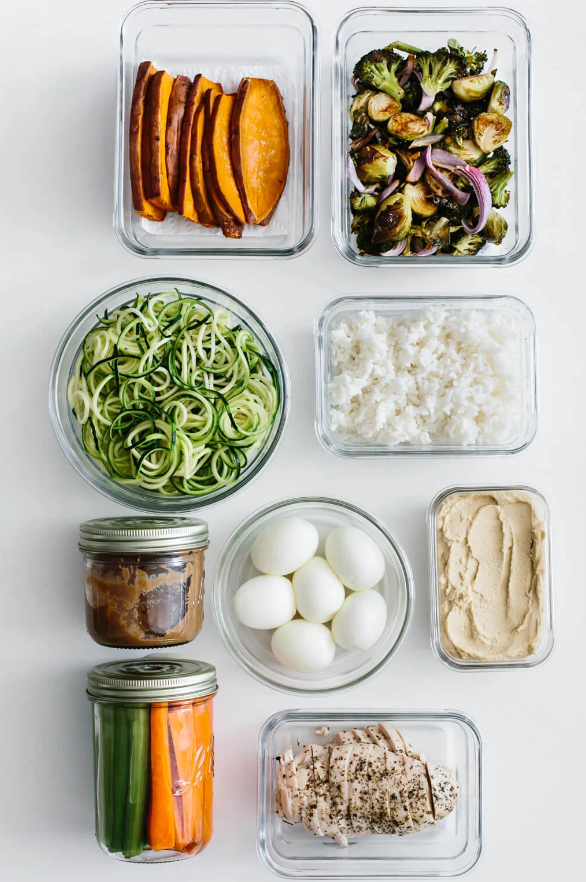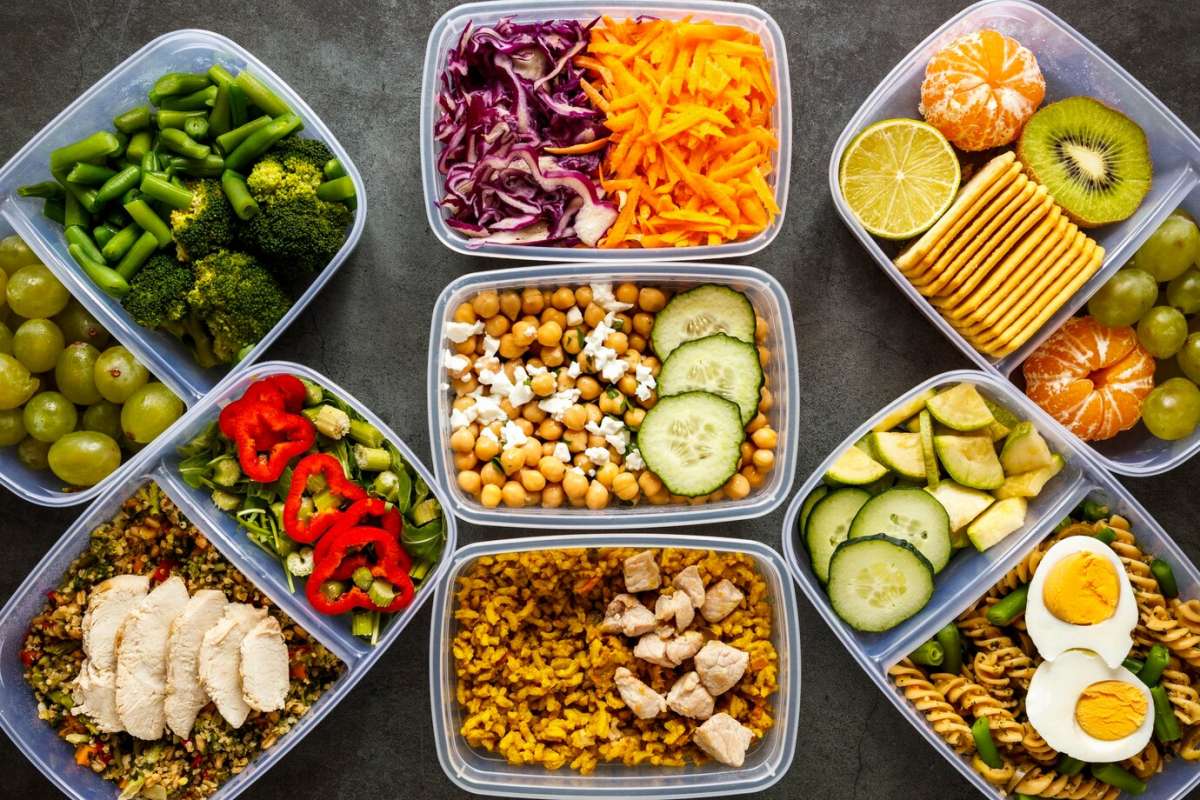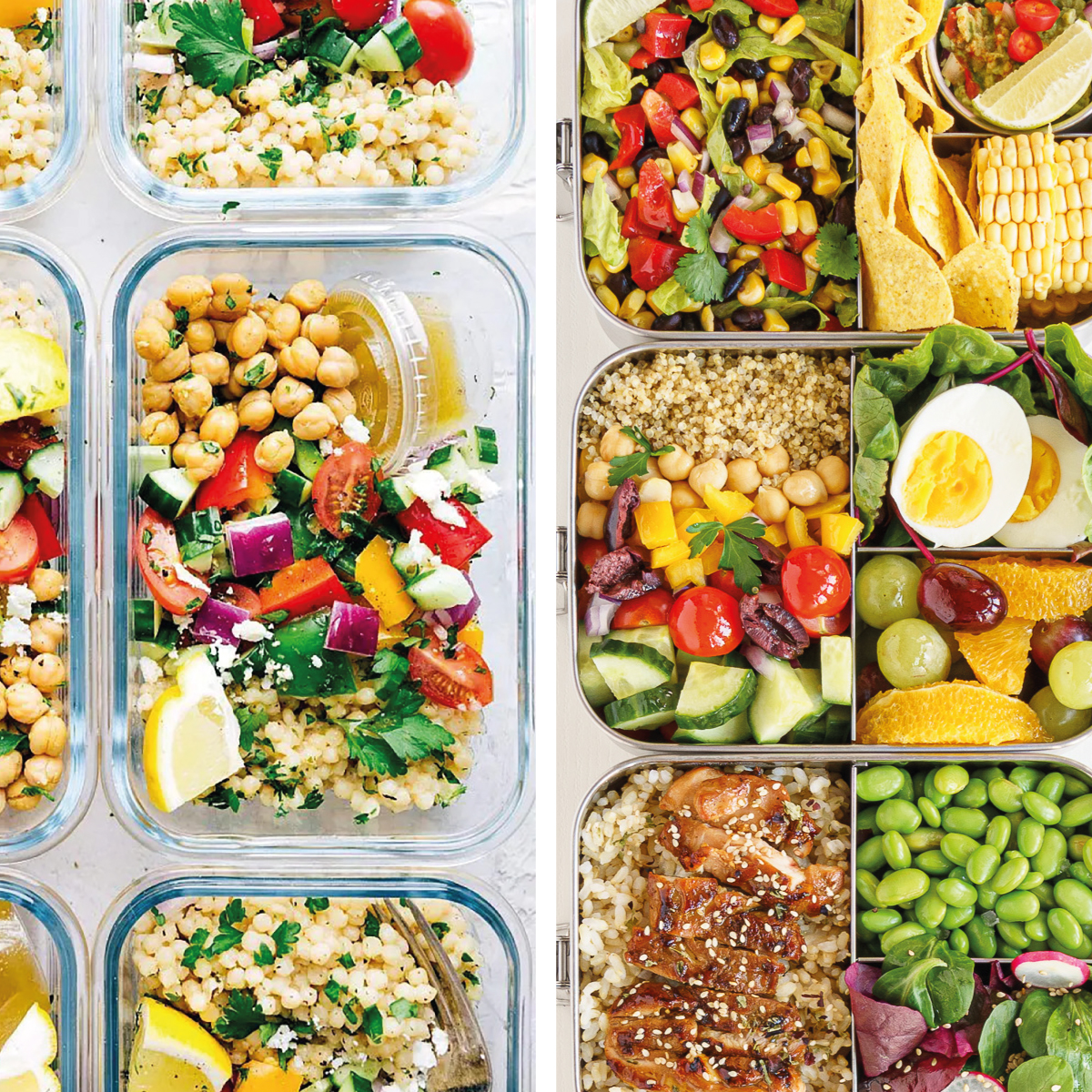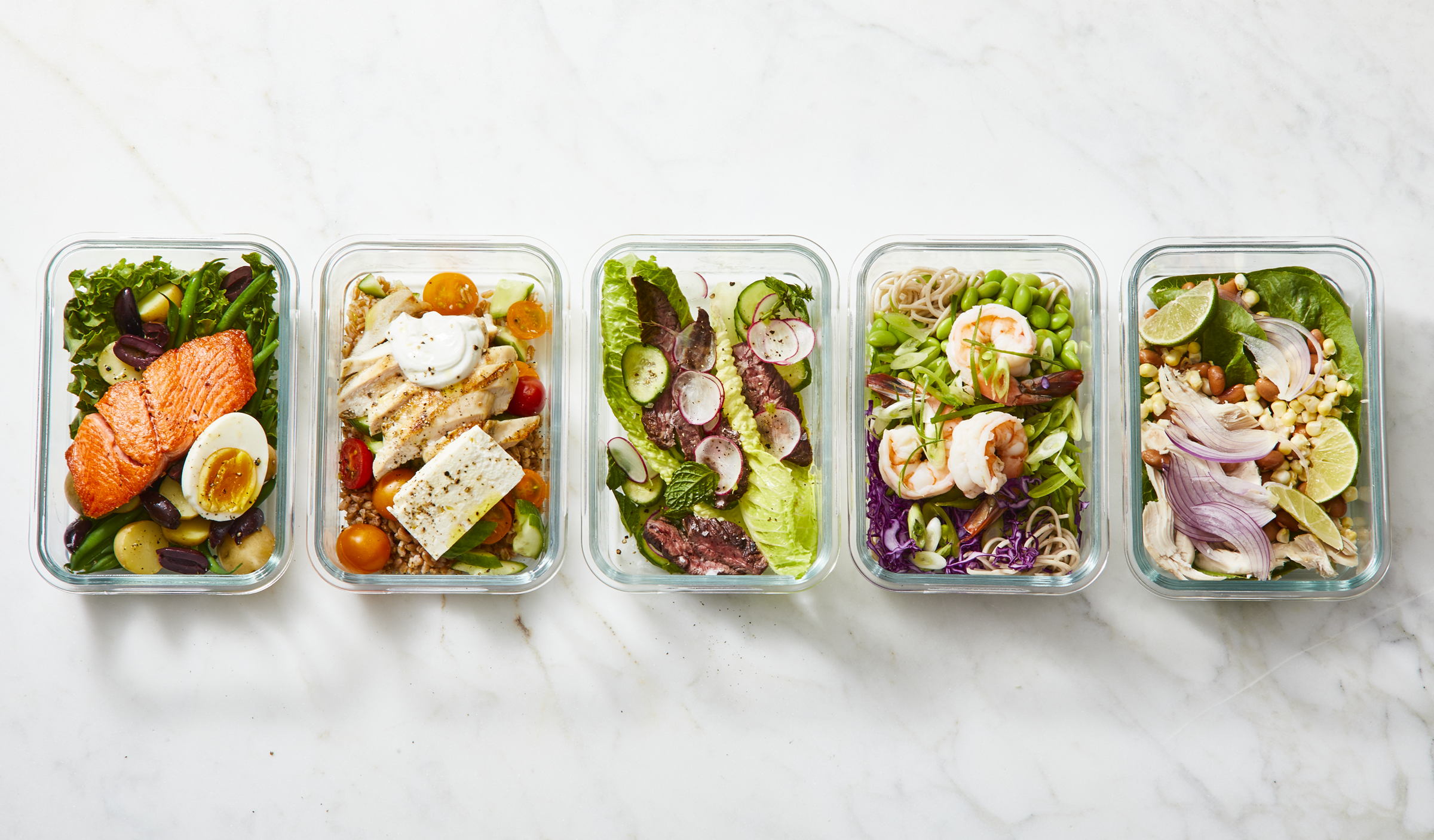
Learning how to meal prep will save you time, money, and make it easier to cook healthy dinners-even when you're busy. This beginner’s guide provides you with a simple step-by-step process to get started with meal prep, ensuring that you have all the information you need to prepare a full week of meals.
What Is Meal Prepping?
Meal prepping is the practice of cooking meals or components of meals ahead of time. This can involve batch cooking entire recipes or preparing key elements like grains, vegetables, and proteins.
Typically, meal preppers portion these meals into individual containers, making them convenient grab-and-go options for the week. This method simplifies your daily routine and allows you to control the nutritional content of your meals.
Most meal preppers prepare 3-7 days’ worth of food at a time, streamlining their eating habits.
Benefits Of Meal Prepping
There are numerous benefits to adopting a meal prep routine, including:
- Improved Diet Quality: Meal prepping encourages healthier eating habits by having nutritious meals readily available.
- Cost Savings: Planning meals reduces unnecessary grocery purchases, leading to lower bills and less food waste.
- Time Efficiency: Preparing meals in advance saves time during busy weeknights, allowing for quicker, stress-free dinners.
- Better Portion Control: Portioning meals helps prevent overeating and keeps caloric intake in check.
- Positive Mental Health Effects: Knowing that you have healthy meals prepared can reduce stress and improve your overall mood.
Whether you're looking to lose weight, bulk up, or simplify your life, meal prepping can be a powerful tool.
Related: How To Balance Spices In Cooking - Tips For Flavor Perfection
What Are The Best Foods For Meal Prep?
When it comes to meal prepping, it's essential to choose foods that store well, reheat nicely, and work in multiple recipes. Here are some great options:
- Whole Grains: Brown rice, quinoa, oats, and farro.
- Fruits: Apples, bananas, berries, and citrus fruits.
- Vegetables: Broccoli, peppers, carrots, and leafy greens like spinach and kale.
- Lean Proteins: Chicken, turkey, fish, tofu, and legumes such as black beans and lentils.
- Healthy Fats: Avocados, nuts, seeds, and healthy oils.
By keeping a variety of these foods in your pantry and refrigerator, you’ll always be ready to whip up a meal.
What Tools And Supplies Do You Need?
Getting started with meal prepping doesn’t require a complete kitchen overhaul. Here are some essential tools:
- Storage Containers: Invest in quality airtight containers to keep your meals fresh. Glass containers are ideal for reheating.
- Cutting Board and Knives: A good cutting board and sharp knives will make prep work much easier.
- Pots and Pans: Large pots for cooking grains and big pans for sautéing or roasting vegetables.
- Sheet Pans: Perfect for batch cooking or roasting multiple ingredients at once.
If you want to expand your meal prep capabilities, consider using an Instant Pot or air fryer, but these are optional. Starting with the basics allows you to develop your skills without overwhelming yourself.
How To Cook Meals For A Week
Meal prepping can be a lifestyle change, so it’s best to start small. Here’s a step-by-step guide:
Step 1: Meal Plan
Create a menu for the week. Choose simple recipes that are easy to prepare and store well. Consider repeating a few meals throughout the week to simplify your cooking time. Aim for balanced meals that include lean proteins, whole grains, and plenty of vegetables.
Step 2: Shop
Before heading to the store, check your pantry, fridge, and freezer for items you already have. Make a shopping list based on your meal plan to ensure you get everything you need in one trip, saving time and money.
Step 3: Cook
Prepare your meals according to the recipes. Batch cooking is key—try to cook larger portions to cover several meals. As a beginner, focus on a few recipes at a time to avoid feeling overwhelmed.
Step 4: Store
Once cooked, portion your meals into airtight containers. Store individual servings to make it easier to grab meals throughout the week. Label the containers with dates to track freshness.
Here’s a helpful video that demonstrates easy meal prepping techniques:
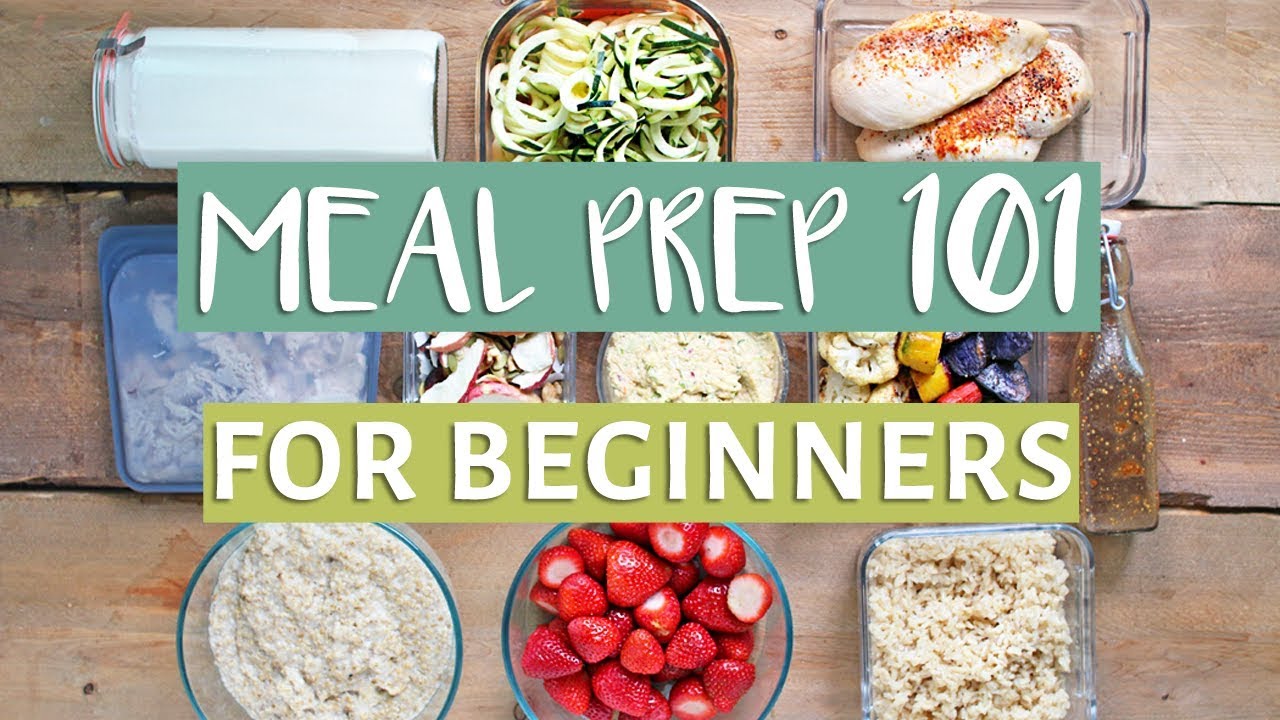
EASY MEAL PREP WITH ME! | Beginners Guide To Meal Prep
See Also: How To Cook Sausage Links In The Oven?
Food Safety Guidelines
Maintaining food safety is crucial when meal prepping:
- Storage Time: Generally, prepared meals can last in the refrigerator for 3-4 days. If you want to prep food further in advance, consider freezing meals, which can last up to 3 months.
- Proper Cooling: Allow food to cool before sealing it in containers to prevent condensation, which can lead to spoilage.
- Avoid the Danger Zone: Keep your prepared meals out of the “danger zone” (40°F to 140°F) to minimize the risk of foodborne illnesses.
Advanced Meal Prep Tips
For those looking to elevate their meal prep game, here are a few advanced tips:
- Flavor Variations: Use different spices, marinades, or sauces to keep meals interesting throughout the week.
- Ingredient Prep: Chop vegetables, marinate proteins, and cook grains in advance, so they’re ready to go when you start cooking during the week.
- Dietary Flexibility: If you have dietary restrictions, consider prepping ingredients that can easily be adapted to different meals or preferences.
Meal Prep Recipes To Get Started
Here are some beginner-friendly meal prep recipes to kickstart your journey:
- High-Protein Breakfast Casserole: A delicious way to start your day, packed with protein and easy to portion out for the week.
- World’s Tastiest Chicken, Brown Rice & Broccoli: A classic meal that’s easy to prepare in bulk and reheat.
- Crispy Pork & Rice: A versatile recipe that can be adapted to your pantry staples.
- Easy Coconut Fish: A great way to introduce fish into your diet with a creamy sauce to keep it moist.
- Pr-Oat-Ein Breakfast Cookies: Perfect for breakfast or snacks, these cookies are high in protein and freeze well.
Also Read: How To Make Trader Joes Frozen Gyoza In The Air Fryer
Meal Prep FAQ
How Long Do Meal Prep Meals Last In The Fridge?
Most meal prep meals will last 3-4 days in the fridge when stored properly. To extend their life, consider freezing meals.
How Do You Store Your Meal Prep?
Let food cool to room temperature before portioning it into airtight containers. Glass, plastic, or metal containers are all effective, but consider using microwave-safe containers for reheating.
Which Days Are Best For Meal Prep?
The best days for meal prep depend on your schedule. Many people prefer to prep on weekends, but you can choose any day that works for you.
How Do You Figure Out Portion Size?
Portion sizes can vary based on your dietary needs, but a good starting point is aiming for a balance of protein, carbohydrates, and vegetables. Experiment with what works for you.
How Do You Reheat Meal Prep?
You can use the microwave for quick reheating. For better results, consider using the stovetop or oven for even heating.
Conclusion
Meal prepping can significantly simplify your week, providing nutritious meals at your fingertips. By starting small and focusing on what you enjoy, you can build a meal prep routine that works for you. Remember to experiment and have fun in the kitchen as you develop your skills!
